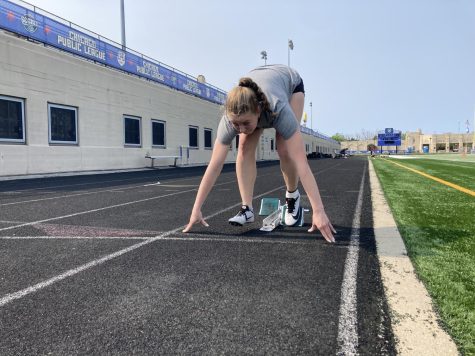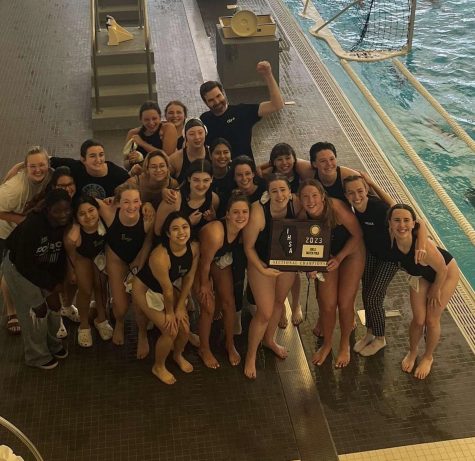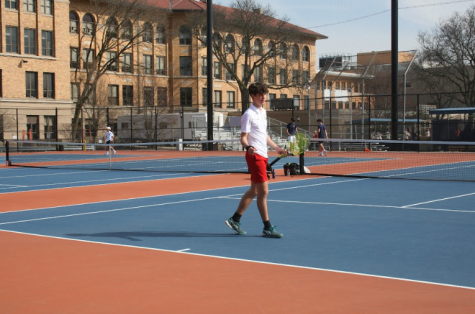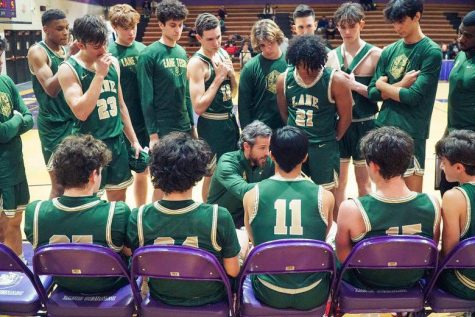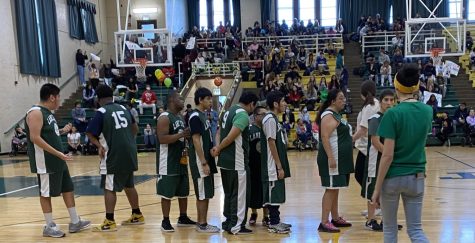Athletes move from half time to no time

While some students head home, others are heading towards practice.
October 31, 2016
Being in a sport comes with the sacrifice of something irretrievable.
Time.
From the amount of hours put into practice every week to the amount of hours not being used for other things going on in the athlete’s life such as academics and social events. Time is a big factor in sports.
Most sports have practices every day after school and not only are they right after an 8 hour school day, it also occurs before a 3-5 hour work shift for some.
“I have work right after practice,” Football Captain Sabian Edouard, Div. 757, said. “I’m supposed to be working 5 hour shifts but my schedule has been changed. I’m currently working 3 hours so from 7-10 p.m.”
With athletes having to work after their long day of school and energy-draining practice, this affects their sleeping habits. Having to go home to be greeted by household duties, homework stacks and studying for any exam coming their way, there is only so much sleep you can get from time consuming tasks.
“Depending on the workload, whether I have a big project or if I need to practice something for band, I usually finish around 12:45 to 1:00. I sleep until 6:30, getting about 5 and a half hours of sleep a day,” Edouard said.
Many of Lane athletes are deprived of sleep. They find themselves getting below the recommended sleep time of 7 to 9 hours for teenagers. Having only 5 hours of sleep is not only a customary routine for athletes with jobs, they also find themselves running low on personal time.
One of Lane’s swim captains, Arijana Sabanovic, Div. 771, wakes up every day at 4:45 a.m. in order to start her practice at 6 a.m.
“From 7:15 to 7:50am, I get ready for school at school, then I have school until 3:15pm,” she said. “By 3:45 p.m. I am in the pool again until 6:15-ish. I get ready to go home and by 7 p.m. I am home. I do homework first and then eat whenever I am done with that. I try to be in bed by 10 p.m. Sometimes when it gets out of hand I get to bed around midnight.”
Because some of these athletes only obtain 4-5 hours of sleep every day, they sometimes catch themselves falling asleep in class.
“I fall asleep in some of my classes,” Edouard said. “I have slept in class at least once every day since the beginning of the school year.” Edouard said.
With little time to study at home and little energy to stay up during class, it reflect on the athletes’ test.
“I actually had a test today. I failed it completely,” Edouard said. “I don’t really have time to prepare at home especially since I want to go to sleep after having to do all my school work and all. To me, sleeping would be better.”
Because practice takes up a substantial amount of time from the athlete’s day, sleep is not the only thing they are sacrificing. The athletes also find little to no time for studying for test and quizzes the next day.
“You can say practice time affects my study time a lot because they usually make test on the same day as practice so it limits the amount of time I have to study for the test at home,” Jose Terrazas, Div. 773, said. “I usually end up having to study the period before because I don’t have the time to do it at home.”
Not only does sports take hours from the players’ day during the school year, conditioning for the sport, especially in the summer, take up time as well. It can take up hours which accumulate to the average school day hours.
“Every day in the summer we practice from 7-11 a.m.,” Bradley McCarey, Div. 768, said. “A week in August we had double practice from 7-11 a.m., an hour break, and then from 1-3 p.m.”
Although the lack of time may seem like a troublesome predicament, the athletes continue to strive through the troubles they encounter just to continue doing the thing they enjoy. Track and XC runner, Maggie Scholle, Div. 776, further explains what it means to really enjoy the sport she does.
“I really really love running,” Scholle said. “It was definitely a really hard adjustment freshmen year but because running is something I’m so invested in, it’s really no question for me. It’s worth it.”
The athletes not only enjoy the sport, they enjoy the valuable habits they pick up with it. From learning how to maintain their schedule, to learning new characteristics, the athletes take it all in in order to better themselves.
“Honestly, I enjoy it because it keeps me on track,” McCarey said. “It teaches you a lot about how to handle multiple responsibilities. It creates a work ethic and you gain a lot of characteristics. Leadership, accountability, nobility, and excellence. It’s an acronym for LANE — a standard we want to instil in our everyday life.”



